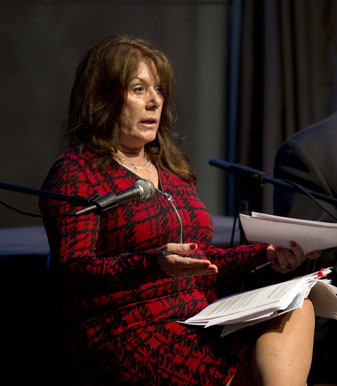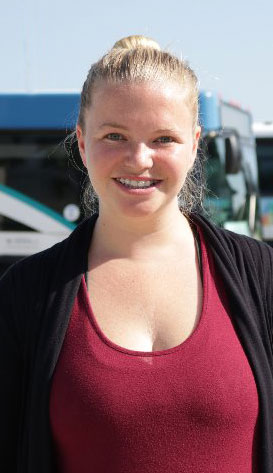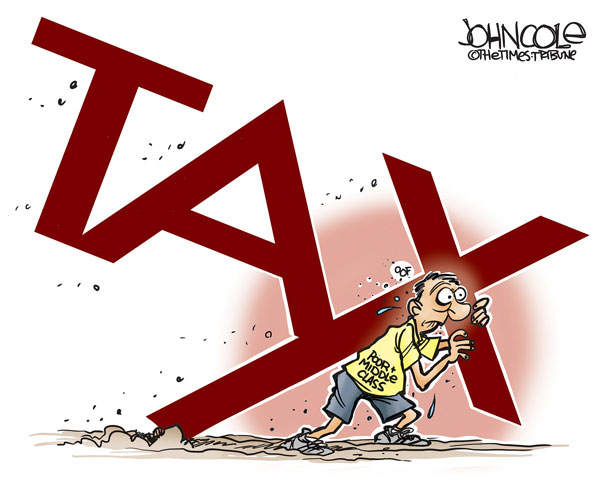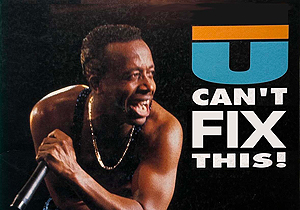On September 15th, the PSTA board voted 10-3 (video of the vote) to ask the Pinellas County commission to hike the millage rate from 0.7305 to 0.7500, a 2.7% increase. PSTA’s spending will increase by an eye-popping 28.3% next year (see page 9). Also, PSTA staff actions indicate that they may be preparing for another run at a sales tax hike.
Before the millage rate vote, and given increasing property values, citizen board appointee Brian Scott asked how much more money PSTA would have received if the millage rate was not raised. The answer Scott received from the PSTA finance director was “$3.1 million more in revenue in fiscal year 2017”.

Voter apathy is apparently great, because only two people showed up at the public hearing. “PSTA pledged 28% in service cuts should Greenlight fail”, said Barb Haselden, leader of No Tax for Tracks Pinellas, “and they have made zero net cuts. Now PSTA wants uneconomical $900,000 electric buses that use unproven technology. The PSTA board has voted to raise the 2017 millage rate to the maximum, and next they will run to the Legislature and seek to have that millage cap lifted”, said Haselden. “PSTA and it’s board are hopeless tax and spenders, but thank goodness Greenlight failed”.
Citizen appointees Brian Scott and Ben Diamond, along with county commissioner Dave Eggers voted “no” on both the millage rate hike and the new budget. Board members Bill Jonson and Julie Bujalski were not present.
PSTA may be looking for even more money to fill holes caused many years of mismanagement. Despite a July finding by transportation experts that “promoting local sales tax increases for transit projects will always be a losing struggle in Florida”, it seems that PSTA might disrespectfully disagree with that conclusion.
Two years after the defeat of Greenlight Pinellas, PSTA retains the domain name greenlightpinellas.com, pays for hosting of it, has kept the Greenlight Pinellas Facebook page, and will not answer questions from TampaBayGuardian.Com about any of it. See our questions at the end of this article.
When asked if she was concerned about the possibility of another run at a sales tax hike for light rail, Haselden said “yes”. Haselden went on – “I do think they will try again, but this time they will try regionally. What have they got to lose? It’s our money their spending. PSTA’s services can be contracted out while retaining the workforce”, said Haselden. “It’s the incompetent management that needs to go, and oversight needs to be improved greatly”.

The questions were submitted to PSTA CEO Brad Miller and PSTA Media Liaison and Public Information Officer Ashlie Handy on Wednesday. We asked for answers by the end of the day. No answers had been received by the end of the week.
It’s possible that PSTA has adopted the same “we won’t answer ANY questions from the Guardian” policy announced by PSTA board member Julie Bujalski at a Dunedin City Commission candidate forum last week. The Guardian will seek clarification on media interaction at the next PSTA Board meeting on September 28th at 6:00 P.M., and report back to its readers. It’s the only evening meeting that the PSTA board has all year, and members of the public may speak at these meetings. The public may attend and also speak at this or any other PSTA board meeting.
There is no disagreement that PSTA has an aging fleet of 200 buses, and that major capital expenditures are needed to replace these buses. However, the PSTA board has steadfastly refused to cut the number of revenue miles, a measure of the amount of service delivered. Their refusal to cut service has at times gone against staff recommendation, although PSTA staff position is that the overall number of revenue miles (or revenue hours) should not be cut.
Evidence shows that neither service cuts nor price increases have a great effect on transit ridership, mainly because those who use transit do it because they have to. If PSTA cut service as they pledged in 2014, fewer new buses would be needed and the taxpayers would be spared tens of millions of dollars in expense.
One reason we researched and wrote this article is because we could find no other news story on this 28% hike in PSTA spending next year. Salaries at PSTA are set to rise 7.4% next year, fringe benefits will cost 9.8% more and insurance costs will rise by 94%. And it’s your money.
Our e-mail to PSTA with question is below. As always, the Guardian reports and the readers decide.

Questions e-mailed to CEO Brad Miller (bmiller@psta.net) and media liaison Ashlie Handy (ahandy@psta.net) on 9/14/2016 at 12:45 P.M.:
1/ PSTA has kept the domain name greenlightpinellas.com and continues to pay for hosting of this domain (through Thinktankhosting.com). Some questions around those two facts.
a/ Why does PSTA retain the domain name greenlightpinellas.com? It is renewed until 7/6/2017.
b/ Does PSTA plan to pay the renewal fee to keep greenlightpinellas.com beyond the current expiration date?
c/ Why does PSTA continue to pay for hosting of greenlightpinellas.com?
d/ Does PSTA pay Thinktankhosting.com for hosting directly, or is it through a 3rd party? If it’s through a 3rd party, who is that 3rd party?
2/ PSTA has also has left the Greenlight Pinellas Facebook page in place rather than shutting it down. Why?
3/ Will PSTA definitively state that it does not plan to use either the greenlightpinellas.com domain name or Facebook page for another referendum effort?
4/ The very last post by PSTA on the Greenlight Pinellas Facebook page said:
“This is the time for us to come together, and PSTA looks forward to working with critics and supporters alike to help craft not only a world-class transit system, but a world-class destination for jobs, tourism, families, students, seniors and opportunity.”
Since that date 22 months ago, which “critics” has PSTA reached out to in order to “work together”?
5/ Does PSTA plan to form a Citizens Advisory Committee to “help craft not only a world-class transit system” ??


